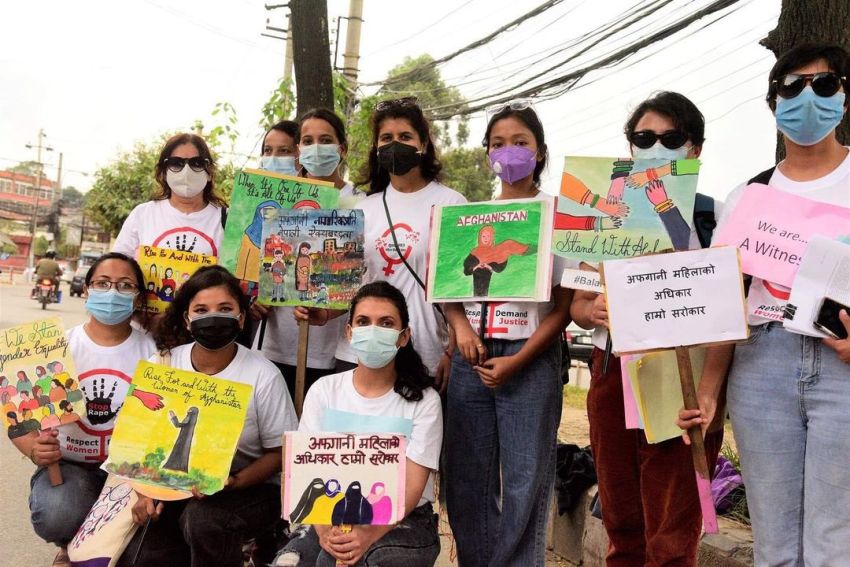
On August 15, the Taliban entered Kabul. Only a day before, the whole sprawling city was operating normally, despite the fear that the Taliban were at the gates.
Students had gone to their schools and universities while government employees went to their respective offices. The passport department, traffic police, banks and the United Nations offices were operating amid the fears of a Taliban takeover.
On August 15, news channels across the world aired the breaking news: “Taliban entered Kabul, Taliban in the presidential palace, Taliban in the police headquarters…”
For the next few days, residents of Kabul stayed home out of fear and uncertainty. However, some brave women and men took to the streets to protest and demand their rights. Yes, they also went to grocery stores for groceries.
But surprisingly, despite the repeated requests by the Taliban to former government employees [to return to work], a majority has stayed home. It seems as if Kabul and the rest of Afghanistan is on general strike ever since the Taliban occupation. The outside world has not yet noticed that the whole country is actually on a strike. At least, there is a “tools down” situation on a mass level.
The government offices are mostly occupied by the Taliban who do not know how to run it and need the assistance of the former employees to even operate a computer. But the former government employees have largely stayed home despite the repeated calls of the Taliban regime.
Wajiha (not her real name) is a doctor by profession and worked at the Rabia Balkhi hospital. She told me: “Even though the Taliban repeatedly called us back to work and even though we know that our people need us, yet many lady doctors didn’t return to their jobs, in reality it was saying 'no' to the Taliban takeover.”
She added: “Who wants to work under a brutal regime whose only purpose is humiliating and terrorizing Afghans? Some like me still want to work, but I don’t know how long. I also support the others to not work under this regime.”
Some employees have returned to their jobs, like some teachers, doctors, former employees, but a large number of employees stay away. For over a month, this undeclared strike has paralysed the country. This shows how alienated the Taliban regime is.
A teacher from the Makroryan area in Kabul told me on condition of anonymity: “I am a teacher at one of the private schools in Kabul. When the Taliban announced that primary students can return to their classes, it was surprising that not only did the majority of the teachers not return to their jobs, but the majority of the students are still staying home. Every class has four or six students, while we usually had 25 to 27 students.”
Her husband, who also spoke on the condition of anonymity, added: “I work for one of the government ministries. The employees were asked to return, but the majority are not coming to their jobs, just like me. Who wants to be humiliated on a daily basis or to be headed by an illiterate Mullah?”
He added further: “It’s not easy, as we have financial problems too, but we also need to silently say `no' to these barbarians. They cannot operate anything without us and we also cannot work under their command, so we are staying away.”
Meanwhile, Kabul university faculty had given an ultimatum to the Taliban to change their approach towards higher education and replace their mullahs with educated professors, besides allowing women students to return. The Taliban refused to budge. Hence, 70 university professors resigned and the majority of the male students are also staying home.
[Jeddojehad (Struggle), a left-wing, online Urdu-language daily in Pakistan, is posting reports from Kabul. Filed by Yasmeen Afghan (not the author's real name), these reports depict the picture from inside Kabul and cover what is often ignored in the mainstream media. For a wider circulation, these reports are translated to English.]